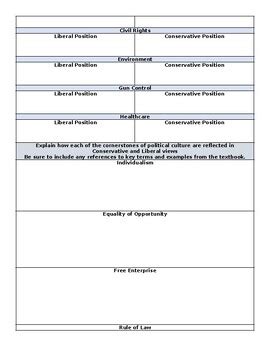Introduction
American attitudes toward government and politics have undergone significant shifts over the past few decades. Declining trust in institutions, increased political polarization, and the rise of social media have all contributed to a complex and often volatile political landscape. This eBook delves into the latest research and analysis to provide a comprehensive understanding of American attitudes about government and politics.

Declining Trust in Institutions
According to the Pew Research Center, only 24% of Americans trust the federal government to do what is right “just about always” or “most of the time.” This represents a significant decline from 64% in 1958. Similarly, trust in other institutions, such as the news media and major corporations, has also fallen sharply.
Table 1: Trust in Institutions
| Institution | Trust (%) |
|---|---|
| Federal government | 24 |
| News media | 32 |
| Major corporations | 27 |
Causes of Declining Trust
- Partisan Polarization: Political polarization has made it increasingly difficult for Americans to see the other side as legitimate or trustworthy.
- Media Fragmentation: The proliferation of cable news channels and social media platforms has created echo chambers where individuals only encounter opinions that reinforce their existing beliefs.
- Government Failures: A series of high-profile scandals, such as Watergate and the Iraq War, have eroded public confidence in the integrity and competence of government.
Political Polarization
Political polarization in the United States has reached unprecedented levels. According to the Pew Research Center, 92% of Republicans and 89% of Democrats say they are more politically liberal or conservative than the average American.
Table 2: Political Polarization
| Party | Identification | |
|—|—|
| Republicans | 92% more conservative | |
| Democrats | 89% more liberal | |
Causes of Political Polarization
- Ideological Sorting: Americans have increasingly sorted themselves into partisan communities, where they surround themselves with like-minded individuals.
- Media Consumption: The consumption of partisan news sources reinforces existing beliefs and exacerbates ideological differences.
- Political Gerrymandering: Gerrymandering, the practice of drawing electoral districts to favor one political party, has contributed to the election of more ideologically extreme candidates.
Role of Social Media
Social media has become an increasingly influential force in American politics. While it has democratized access to information, it has also facilitated the spread of misinformation and political extremism.
Table 3: Social Media and Politics
| Platform | Political Use (%) |
|---|---|
| 89 | |
| 87 | |
| 81 |
Effects of Social Media
- Echo Chambers: Social media algorithms often present users with content that reinforces their existing beliefs, creating echo chambers where individuals are less likely to encounter opposing viewpoints.
- Misinformation: Social media platforms have been vectors for the spread of fake news and conspiracy theories, which can damage trust in institutions and undermine democratic discourse.
- Mobilization: Social media can be used to mobilize political action, both positive and negative. However, it can also facilitate the spread of hate speech and extremist propaganda.
Future Trends
It is difficult to predict the future of American attitudes about government and politics with certainty. However, several trends are likely to continue:
- Continued Decline in Trust: Declining trust in institutions is likely to continue as Americans become more polarized and exposed to a constant bombardment of information and opinions.
- Greater Political Polarization: Political polarization is likely to intensify as politicians continue to appeal to their partisan bases. This could make it increasingly difficult for the government to address the nation’s most pressing problems.
- Growing Influence of Social Media: Social media will continue to play an increasingly influential role in American politics. It is essential to understand the potential benefits and risks of this technology and to develop strategies to mitigate its negative effects.
Tips and Tricks
Here are some tips for navigating the complex political landscape in the United States:
- Be Informed: Stay informed about current events and political issues by consuming news from a variety of sources with different perspectives.
- Engage in Civil Discourse: When engaging in political discussions, be respectful of others’ opinions, even if you disagree with them.
- Get Involved: Participate in the political process by voting, running for office, or volunteering for a campaign. Even small actions can make a difference.
Common Mistakes to Avoid
Here are some common mistakes to avoid when discussing government and politics:
- Oversimplifying Complex Issues: Politics is often complex and nuanced. Avoid reducing complex issues to simplistic narratives that favor one side or another.
- Engaging in Ad Hominem Attacks: Attacking individuals personally rather than addressing their ideas is a sign of weak argumentation.
- Assuming Bad Faith: Do not assume that those who disagree with you are acting in bad faith. Give them the benefit of the doubt and try to understand their perspective.
Conclusion
American attitudes about government and politics are complex and constantly evolving. Declining trust in institutions, increased political polarization, and the rise of social media have all contributed to a challenging and often volatile political landscape. By understanding these trends and following the tips and tricks outlined in this eBook, individuals can be more informed, engaged, and effective participants in the American political process.
